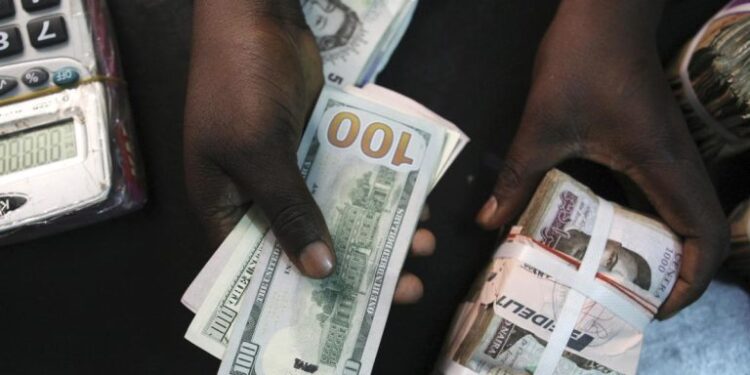The exchange rate for the US Dollar to the Nigerian Naira in the black market, often referred to as the parallel market or Aboki FX, remains a critical reference for many Nigerians amid fluctuating economic conditions.
Current Black Market Exchange Rate
As of Thursday, 9th January 2025, the Dollar to Naira exchange rate in the Lagos black market is:
– Buying Rate: ₦1,655 per $1
– Selling Rate: ₦1,660 per $1
This rate is sourced from Bureau De Change (BDC) operators and serves as a benchmark for transactions outside the official forex channels.
Central Bank of Nigeria (CBN) Rate
The Central Bank of Nigeria (CBN) officially pegs the exchange rate at a lower level than the black market:
– Highest CBN Rate: ₦1,545 per $1
– Lowest CBN Rate: ₦1,537 per $1
However, the CBN does not recognize the black market and advises individuals to conduct foreign exchange transactions through authorized financial institutions, such as banks.
Why the Difference in Rates?
The disparity between the official CBN rate and the black market rate is attributed to several factors, including:
1. High Forex Demand: Businesses and individuals who cannot access sufficient foreign currency through official channels resort to the black market.
2. Limited Forex Supply: The ongoing scarcity of dollars from official sources creates a thriving parallel market.
3. Economic Policies: Inflation, rising import costs, and government restrictions on dollar access influence the higher black market rates.
Exchange Rate Variations
It’s important to note that the rates at which you buy or sell dollars may differ based on your location, negotiation skills, and the BDC operator.
Additionally, the black market rates can fluctuate multiple times within a single day due to demand and supply dynamics.
Implications for Businesses and Individuals
The high exchange rate impacts import-dependent businesses, students studying abroad, travelers, and individuals sending remittances.
It underscores the need for stable forex policies and improved economic conditions to close the gap between official and parallel market rates.
While the black market remains a go-to option for many Nigerians, the risks associated with its volatility and lack of regulation necessitate caution when engaging in such transactions.
For accurate updates, keep an eye on daily fluctuations and consider consulting reliable sources before making large forex transactions.











